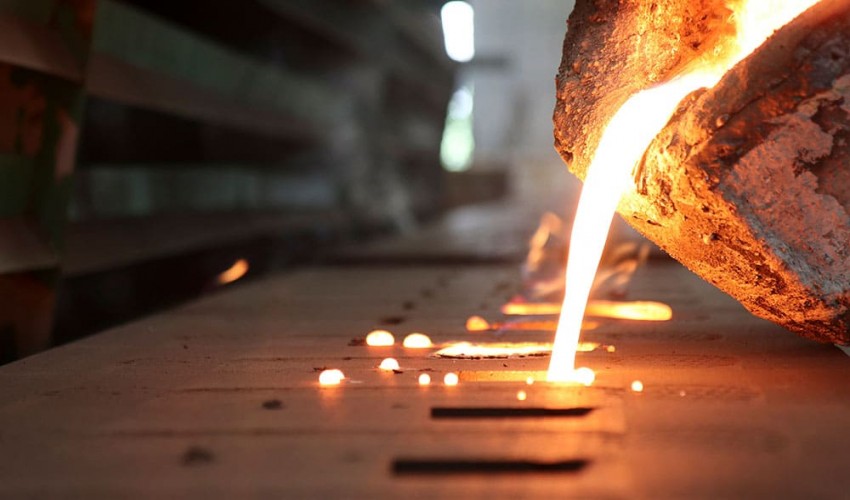
Metallurgical Engineering
The science of metallurgy is subdivided into two broad
categories: chemical metallurgy and physical metallurgy. Chemical metallurgy is
chiefly concerned with the reduction and oxidation of metals, and the chemical
performance of metals. Subjects of study in chemical metallurgy include mineral
processing, the extraction of metals, thermodynamics, electrochemistry, and
chemical degradation (corrosion). In contrast, physical metallurgy focuses on
the mechanical properties of metals, the physical properties of metals, and the
physical performance of metals. Topics studied in physical metallurgy include
crystallography, material characterization, mechanical metallurgy, phase
transformations, and failure mechanisms.
Historically, metallurgy has predominately focused on the production of metals. Metal production begins with the processing of ores to extract the metal, and includes the mixture of metals to make alloys. Metal alloys are often a blend of at least two different metallic elements. However, non-metallic elements are often added to alloys in order to achieve properties suitable for an application. The study of metal production is subdivided into ferrous metallurgy (also known as black metallurgy) and non-ferrous metallurgy (also known as colored metallurgy). Ferrous metallurgy involves processes and alloys based on iron while non-ferrous metallurgy involves processes and alloys based on other metals. The production of ferrous metals accounts for 95 percent of world metal production.
- Physical Metallurgy and Materials Engineering
- Mineral processing
- Metallurgical Thermodynamics and Kinetics
- Transport Phenomena
- Phase Transformations and Heat Treatment
- Unit Processes in Extractive Metallurgy
- Ferrous Production Technology
- Mechanical Behavior of Materials
- Powder Metallurgy
- Foundry Technology and Non-Destructive Testing
- Electro Metallurgy and Corrosion
- X-ray Diffraction and Electron Microscopy
- Mechanical Working of Materials
- Non Ferrous Extractive Metallurgy
- Characterization Techniques
- Elements of Physical Metallurgy
- Metallurgical Thermodynamics
- Mineral Beneficiation
- Machine Elements and Machining
- Phase Transformation and Mechanical Metallurgy
- Mechanical Behaviour and Testing of Materials
- Production of Iron
- Non-Ferrous Extraction Metallurgy
- Corrosion and Surface Engineering
Recent Published
Submit Manuscript
To give your manuscript the best chance of publication, follow these policies and formatting guidelines.


